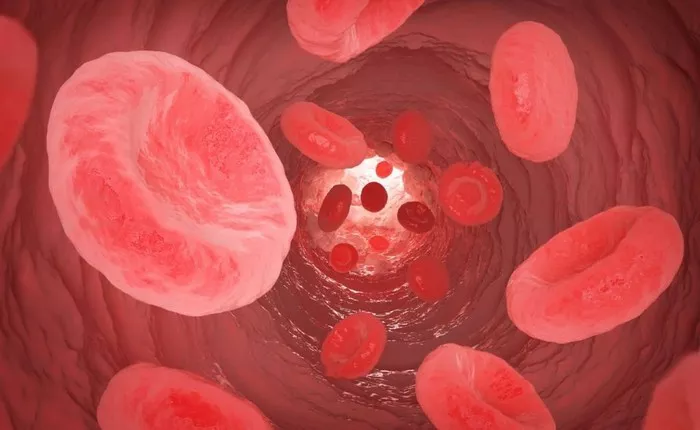Hyperlipidemia and high cholesterol are terms frequently used interchangeably in both medical and lay conversations.
However, understanding the nuances between these conditions is crucial for effective diagnosis, treatment, and management. This article delves into the definitions, causes, symptoms, and treatments of hyperlipidemia and high cholesterol, elucidating whether these terms can indeed be considered synonymous.
Definition And Components
Hyperlipidemia is a broad term encompassing various disorders characterized by elevated levels of lipids in the blood. Lipids include fats, such as cholesterol and triglycerides, which are vital for cell function but can pose health risks when present in excess.
Types of Hyperlipidemia
Hyperlipidemia can be classified into different types based on the specific lipid profile affected:
Primary Hyperlipidemia: Genetic factors primarily cause this type. Familial hypercholesterolemia is a common example, where high cholesterol levels are inherited.
Secondary Hyperlipidemia: This type arises due to lifestyle factors, other health conditions, or medications. Obesity, diabetes, and hypothyroidism are common contributors.
See Also: What Medications Can Cause Hyperlipidemia?
Symptoms And Diagnosis
Hyperlipidemia itself often presents no symptoms until it leads to other cardiovascular diseases. Routine blood tests measuring lipid levels are essential for diagnosis. The key metrics include total cholesterol, low-density lipoprotein (LDL), high-density lipoprotein (HDL), and triglycerides.
High Cholesterol: A Component of Hyperlipidemia
Definition and Importance
High cholesterol, or hypercholesterolemia, specifically refers to elevated cholesterol levels in the blood. Cholesterol, a waxy substance, is essential for building cells and producing certain hormones. However, excessive LDL cholesterol can lead to plaque buildup in arteries, increasing the risk of heart disease and stroke.
Causes and Risk Factors
The causes of high cholesterol can be divided into genetic and lifestyle factors:
Genetic Factors: Familial hypercholesterolemia can result in significantly high cholesterol levels, often from a young age.
Lifestyle Factors: Unhealthy diets, lack of physical activity, smoking, and excessive alcohol consumption can contribute to high cholesterol.
Symptoms and Diagnosis
Like hyperlipidemia, high cholesterol typically shows no symptoms until serious complications arise. Regular blood tests measuring lipid panels are necessary for diagnosis. The lipid panel will highlight elevated levels of total cholesterol, LDL, HDL, and triglycerides.
Comparing Hyperlipidemia And High Cholesterol
Overlap and Differences
While high cholesterol is a type of hyperlipidemia, the term hyperlipidemia encompasses a broader range of lipid abnormalities, including elevated triglycerides and low HDL cholesterol. Thus, all cases of high cholesterol are hyperlipidemia, but not all hyperlipidemia cases are high cholesterol.
Treatment Approaches
Lifestyle Modifications
For both conditions, lifestyle changes are fundamental. These include:
Dietary Changes: Reducing intake of saturated fats, trans fats, and cholesterol while increasing fiber-rich foods can significantly improve lipid profiles.
Physical Activity: Regular exercise helps raise HDL cholesterol and lower LDL cholesterol and triglycerides.
Weight Management: Maintaining a healthy weight can reduce lipid levels and improve overall cardiovascular health.
Medications
When lifestyle modifications are insufficient, medications may be necessary:
Statins: These are commonly prescribed to lower LDL cholesterol.
Fibrates: These medications help lower triglycerides and increase HDL cholesterol.
Niacin: This vitamin can help improve all lipid parameters but is less commonly used due to side effects.
PCSK9 Inhibitors: These are newer medications that significantly lower LDL cholesterol.
Importance of Regular Monitoring
Regular monitoring of lipid levels through blood tests is crucial for individuals with hyperlipidemia or high cholesterol. This helps in assessing the effectiveness of treatment and making necessary adjustments.
Potential Complications
Both hyperlipidemia and high cholesterol can lead to serious health complications if left untreated:
Atherosclerosis: Plaque buildup in the arteries can lead to narrowing and hardening, increasing the risk of heart attacks and strokes.
Pancreatitis: Extremely high triglyceride levels can cause inflammation of the pancreas.
Peripheral Artery Disease: Reduced blood flow to limbs can cause pain and increase the risk of infections.
Prevention Strategies
Preventing hyperlipidemia and high cholesterol involves adopting heart-healthy habits from a young age:
Balanced Diet: Emphasize fruits, vegetables, whole grains, and lean proteins.
Regular Exercise: Aim for at least 150 minutes of moderate-intensity aerobic activity per week.
Avoiding Tobacco and Excessive Alcohol: These substances can negatively impact lipid levels and overall heart health.
Routine Health Check-ups: Regular visits to a healthcare provider for lipid screenings and overall health assessments.
Conclusion
Is Hyperlipidemia and High Cholesterol the Same Thing?
In conclusion, while hyperlipidemia and high cholesterol are related, they are not identical. High cholesterol is a specific type of hyperlipidemia, focusing solely on elevated cholesterol levels. In contrast, hyperlipidemia encompasses a broader spectrum of lipid disorders. Understanding the distinction between these terms is crucial for proper diagnosis, treatment, and management. By adopting healthy lifestyle habits and following medical advice, individuals can effectively manage and prevent the complications associated with these conditions.

